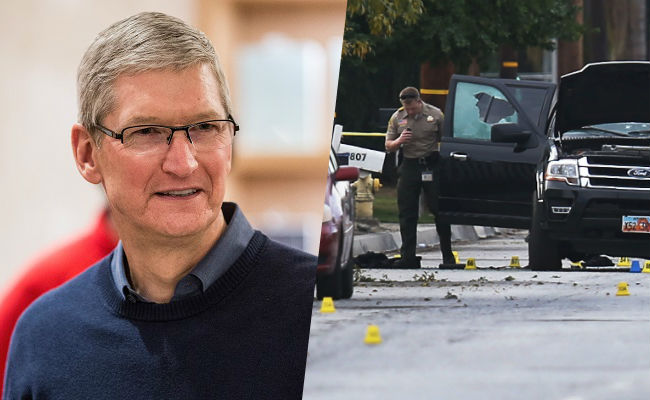
In the months since Syed Rizwan Farook and Tashfeen Malik killed 14 people and injured 21 others, investigators have tried to piece together why the two attacked the Inland Regional Center in San Bernardino, California, last December. The authorities have since determined that, despite Malik’s supposed profession of allegiance to ISIS, the pair wasn’t officially affiliated with any known terrorist organizations. Despite these revelations, the FBI wants access to Farook’s encrypted iPhone 5c and any information it may contain. Apple, however, doesn’t want to turn over its encryption schematics for fear of what the government might do with the information in future investigations and surveillance.
Being that Farook’s phone was the property of the San Bernardino County Department of Public Health, his former employer, the Justice Department, had no trouble in securing a warrant for it. Yet the security the San Bernardino shooter set up on the phone has prevented them from accessing its data. So, a federal judge in California ruled in favor of the FBI and ordered Apple to deliver them “keys” to its rigorous data encryption on Tuesday.
In an unusually detailed directive, Magistrate Judge Sheri Pym of the Federal District Court for the District of Central California ordered Apple to provide “reasonable technical assistance” to the F.B.I. in unlocking the phone. That assistance should allow investigators to “bypass or erase the auto-erase function” on the phone, among other steps, she wrote.
Apple CEO Tim Cook responded to the ruling in a statement issued on the company’s website, saying that he would appeal Judge Pym’s ruling on ethical grounds.
“The United States government has demanded that Apple take an unprecedented step which threatens the security of our customers. We oppose this order, which has implications far beyond the legal case at hand.
“This moment calls for public discussion, and we want our customers and people around the country to understand what is at stake.”
Cook noted that he and everyone at Apple were “shocked and outraged by the deadly act of terrorism in San Bernardino,” and that their organization has done everything they can to provide the FBI with the data and access to data they have required. However, the new ruling suggests something far more intrusive and dangerous — “a backdoor to the iPhone” that would grant San Bernardino investigators and authorities in future endeavors unprecedented access to Apple customers’ personal data.
“The FBI wants us to make a new version of the iPhone operating system, circumventing several important security features, and install it on an iPhone recovered during the investigation. In the wrong hands, this software — which does not exist today — would have the potential to unlock any iPhone in someone’s physical possession.
“The FBI may use different words to describe this tool, but make no mistake: Building a version of iOS that bypasses security in this way would undeniably create a backdoor. And while the government may argue that its use would be limited to this case, there is no way to guarantee such control.”
Even so, the FBI maintains that the kind of case-by-case access they need to get at Farook’s encrypted data wouldn’t lead to the apocalyptic scenario Cook and other Silicon Valley companies have suggested. Bureau director James B. Comey has long maintained that, without de-encryption technology from Apple, Google and others, their investigations into matters of national security are at risk of “going dark.”
(Via New York Times and Apple)
